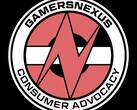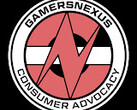Capital One subpoena demanded private viewer identities
According to Gamers Nexus, Capital One issued a subpoena seeking sensitive viewer data, including names, addresses, and potentially traceable purchase history linked to affiliate clicks. This occurred even after the channel was no longer part of the Capital One lawsuit. The bank’s demand for “the identity of consumers” who clicked affiliate links would have exposed completely unrelated individuals and sources who interacted with GN across product recommendations, warranty investigations, and tip-offs on other stories. Gamers Nexus successfully challenged the subpoena and fully withdrew from all legal proceedings to prevent any future demands for user data, giving up the right to pursue similar claims later in order to ensure stronger safeguards for its audience and sources.
Key developments in the Capital One case
The Capital One case has progressed more rapidly than the others, moving through Virginia’s fast-track “rocket docket” system and producing a series of early rulings. The judge allowed the case to proceed on key points, including the claim that Capital One may have exceeded authorized access to users’ computers, while dismissing others related to property and ownership of tracking data. Gamers Nexus criticized the dismissal of claims under California’s data access law, arguing that the court underestimated the effort and cost involved in setting up affiliate links—particularly when creators use tools like Genius Link to manage and localize their tracking systems.
PayPal, Microsoft, and others face similar scrutiny
Other major companies are facing similar legal challenges, with lawsuits claiming that browser extensions—such as those built into Honey, Capital One Shopping, and Microsoft Edge—intercept purchases at checkout and overwrite the original affiliate tag with their own. This alleged practice could divert earnings from the creators who originally referred the sale. Most of these cases are still in the early stages and await certification as full class actions, but they have the potential to impact a wide range of creators and consumers if they move forward. While Ziff Davis, the parent company of RetailMeNot, is also named, its associated gaming outlets like IGN and Eurogamer are not directly involved.
GNCA will continue reporting on this case
Now free from legal constraints, Gamers Nexus plans to continue covering the lawsuits independently through its GNCA Tipline series, with a renewed focus on consumer rights, privacy, and transparency. Profits from its Honeypot T-shirts, which were originally created to support legal costs, will instead be donated to groups supporting digital preservation, consumer advocacy, and local computer reuse initiatives.

















